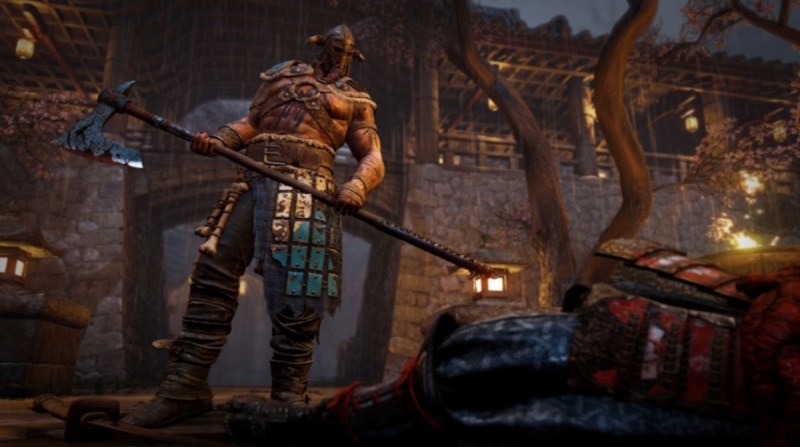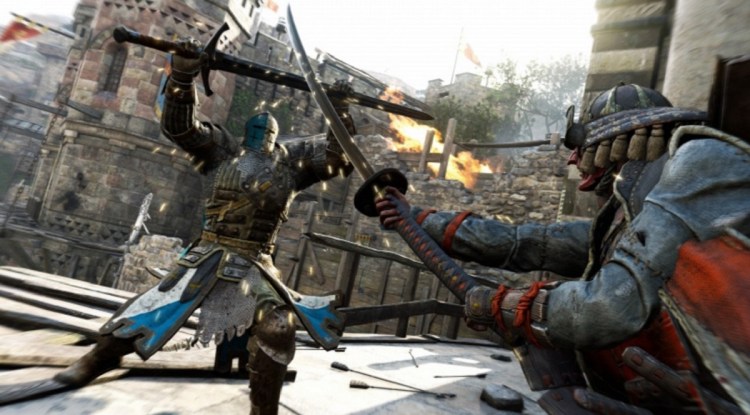GamesBeat: Did you have a time limit?
Duchaine: They didn’t give us a number of minutes. Our demo was two minutes long, the speech was two minutes, and the trailer was three and a half. We were under 10 minutes overall, which was a good amount of time to have a big impact. Sometimes, taking more time — you can let yourself be seduced by that, but to me, it’s a trap. When you go too long, that’s when your message gets diluted. You want to create an impact. You want people to walk out saying, “Wow, that’s impressive.” You don’t want them looking at their watches and wondering what’s next.
GamesBeat: Who would have been in the room as you were dicing up these words?
Duchaine: Jason, the creative director. We also had a communications manager on the team, and myself. It was the three of us looking at it. When we did rehearsals internally, we had more people attending those. They could listen in and say, “Well, I don’t understand why you’d say that and not this.” We gathered their feedback, and we went back and changed some things. But we went for impact.
GamesBeat: Doesn’t that drive you nuts, to spend so much time on something so small?
Duchaine: No, not me. It’s actually what I like. There are some days where it’s like, “Shit, again?” When you think you’ve nailed it and you have to go back. But it didn’t drive me nuts. It helps me focus. The announcement was big. We’d been working on that for almost two years before. I don’t know if people are aware, but it takes almost a year to plan something like that, when you’re working on a big CGI trailer. It takes a long time. We had this target in mind. We didn’t mind spending extra time on the speech because it was part of something bigger.

Above: A victorious Viking shows no mercy in For Honor.
GamesBeat: This is what you have to do in order to create a new brand, something nobody’s ever seen?
Duchaine: Exactly. There are lots of big brands. You go to E3, and you’ll see a bunch of sequels being announced. You need to break through and make your place. That’s why every detail needs to be accounted for. That doesn’t mean you’ll succeed every time. Sometimes, people just aren’t interested. But it’s important to try.
GamesBeat: Getting out there early and often, getting feedback, getting this into the hands of the community, that’s all brand building? Going wide as soon as you can.
Duchaine: For us, it was part of our brand personality, to go out there early and gather feedback, to bring people into the world. It was all part of what we wanted to do, very early. When I joined the project, it was clear that we wanted to be as broad as possible.
GamesBeat: You have that risk that you might have to go back to the drawing board and redo something. You have to tell people, “Well, we’ll see you again in two years.”
Duchaine: It is a risk. It can happen sometimes. We didn’t have that problem, thankfully. But sometimes, that risk might be worth it, to gather feedback and say, “We’re going to adapt. We’re going to make it better.” It’s a risk we’re willing to take.
GamesBeat: Does that run counter [to] a lot of the usual advice you’ve heard, as far as the way things are done in game development?
Duchaine: At the time, it was a bit different from what we usually do. We had people who challenged us and said, “Why do you want to go out so early? Why do you want to play it on stage?” That was a big discussion. “You want to play four on four on stage? What’s wrong with you?” We had this belief, a strong belief, that we needed to do that to make an impact. That’s what we wanted to achieve.
I always go in to win. I don’t go in to be second fiddle. It doesn’t mean that you’ll always win, but we did everything we could. Today, two and a half years later, I have no regrets on that score.
GamesBeat: As far as postmortem goes, looking back today, what measured the impact it had? How successful was the whole brand approach?
Duchaine: You can look at a lot of things — sales, number of players, interaction on the community side, revenues. We have a list of [key performance indicators] we’re tracking. Being a live game is challenging. We haven’t announced any numbers. We’re quite shy on that.
GamesBeat: But it’s doing well from your perspective?
Duchaine: Yeah, we’re happy. One thing we have had to change is the servers. We had to move from peer-to-peer to a server-based game. It became the sort of elephant in the room, something people were talking about. We had to make that break. It took a lot of communication.
GamesBeat: Is there anything else you’ve noticed that suggests the branding worked?
Duchaine: There are always numbers, but it’s the engagement from people — cosplayers, community groups, tournament organizers — that’s where you can see that it’s here to stay. There are lots of passionate people out there. One thing that’s comforting in a way is that even though we had problems, which we’re fixing now, people who stopped playing because of those problems are saying, “OK, we’re going to come back. We love the game. We love the mechanics. Fix this and we’ll come back.” Now we’re fixing that.
It’s much better to hear that than people saying, “I don’t like the mechanics. I don’t like the fighting style. I don’t like the world you’re building.” If that’s the problem, they’ll never come back because the world won’t suddenly change. The core of our game will remain the same.
GamesBeat: Do you have more advice that you’d have, lessons you’d learn?
Duchaine: The first thing I talked about is, take the time to find your way. Take your time to find out what’s the purpose of your game and your marketing assets. If you fail to do that, to me, you’ll create assets that won’t appeal to people. They won’t interest people. It’ll just be a shot in the dark. It might work and it might not.
The second aspect was that no two projects are the same. What we’ve done with For Honor might not work for someone else. You have to keep an open mind, always. And if you’re doing a live game, be ready to adapt your plan. With live games, things will never go as you expected. You need to be ready to adapt and change your plans and make it better.

Above: That’s a big ax in For Honor.
GamesBeat: It sounds like you’re saying that some of marketing is a science, and some of it is an art.
Duchaine: It is for me. When we do trailers, sometimes we do research. We have data. But part of it is just art. Sometimes, there’s just something in how you feel about it. I think about the “Mad World” trailer for Gears of War. It was just a piece of art. I’m sure they researched it with different songs and decided that this particular one had the most appeal, but to me, it was truly a piece of art.
GamesBeat: It sounded like a big subject of discussion was chopping off the guy’s head.
Duchaine: Yeah, in the demo. One of the executions, when he sliced the head off — we had a discussion internally. Should it be a clean shot like, zip? Or does it go, shink, and then the head goes? What do we do? Is this too brutal? For us, when it sticks, it brings so much.
GamesBeat: It’s not about whether to chop a guy’s head off. It’s about how you chop a guy’s head off.
Duchaine: Exactly. The head was going, either way. That wasn’t in question. It was how and the detail in the animation at that precise moment. When I say no compromise on details — we had a big discussion about that one.
Disclosure: The organizers of MIGS 17 paid my way to Montreal. Our coverage remains objective.

